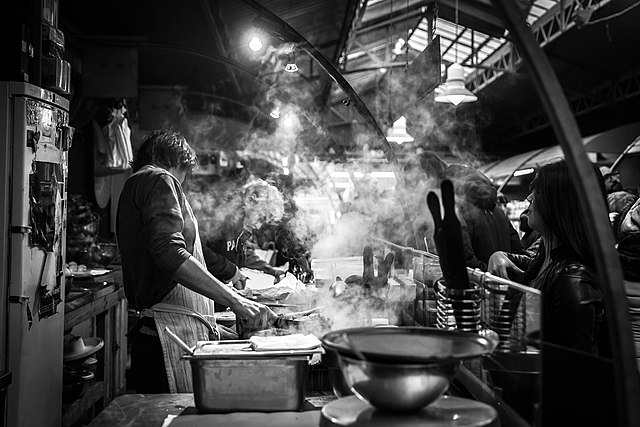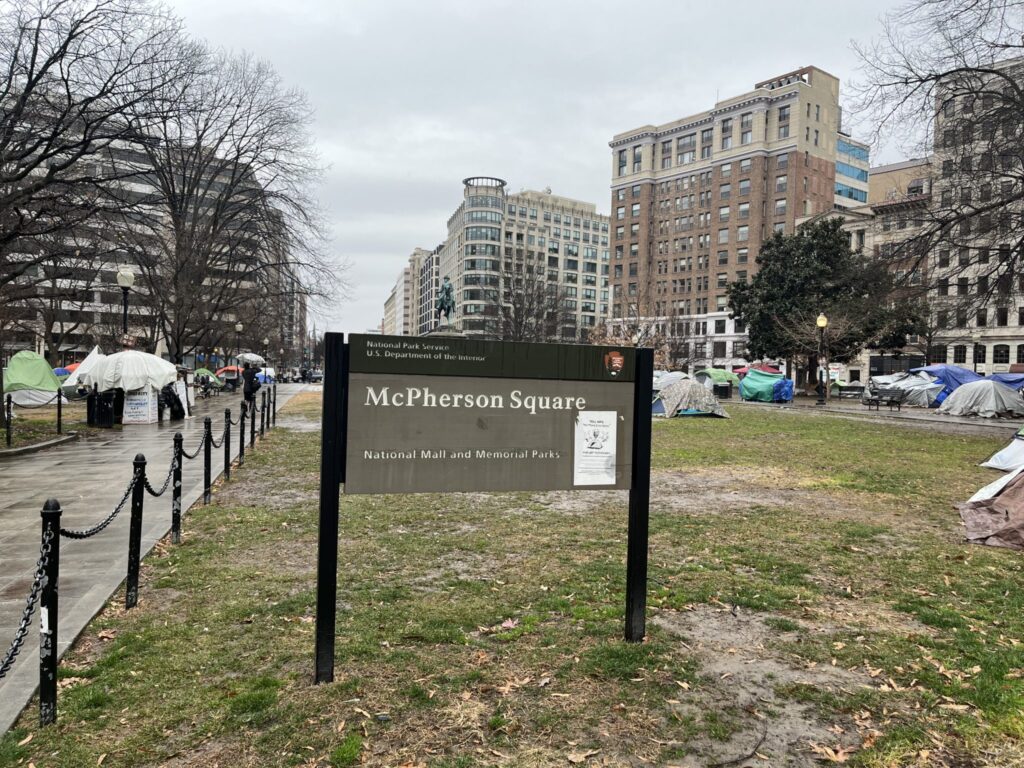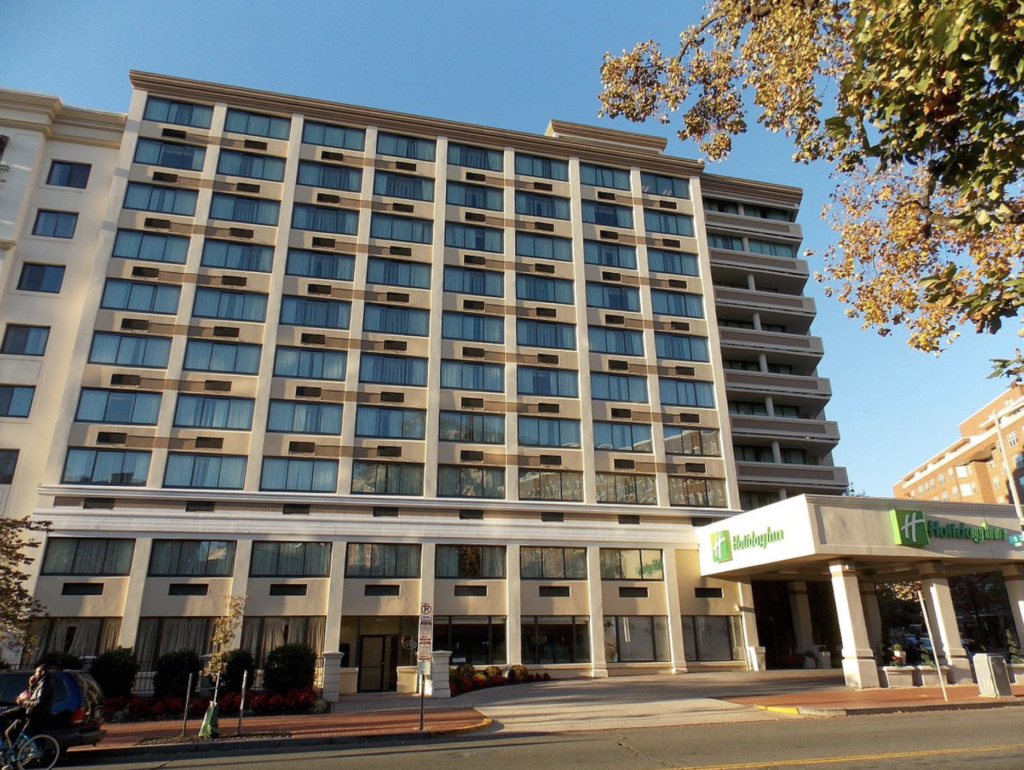This article was featured in the May 13 digital-only edition of Street Sense. Until it is safe to resume person-to-person sales, you’ll always be able to find the current digital-only edition at streetsensemedia.org/Digital Thank you for reading! Please continue to support our vendors through our mobile app (streetsensemedia.org/App).
As the body count from COVID-19 climbs, so does the number of people struggling to meet their basic needs. Many in the informal and cash economy — undocumented people, street vendors, sex workers, and people experiencing homelessness — do not qualify for government assistance unless they meet certain criteria.
There is a glimmer of hope from community organizations and businesses. Events D.C has announced intentions to allocate $15 million for hospitality workers and undocumented people. Local organizations have supported affected workers with cash assistance and grocery deliveries. A grassroots mutual aid network has provided food and financial support to residents. Many restaurants have set up fundraisers for their staff. But community-based relief can only go so far.
The D.C. government’s refusal to provide aid to all workers excluded from federal relief threatens to pit members of already vulnerable communities against one another by forcing them to compete for scarce resources. The District must fund relief for all workers and residents to avoid a public health catastrophe, and business owners must pressure the city to do so.
Though the D.C. Council considered expanding unemployment insurance to laid-off undocumented workers, the plan was nixed at the last minute. Events D.C., the local tourism group, stepped in with $5 million in funds for undocumented workers and $10 million for hotel and restaurant workers and operators.
While generous, that, too, is not enough. According to Pew Research Center, undocumented immigrants comprised 3.8 percent of the workforce in D.C. in 2016, meaning that $5 million can provide about $200 to each worker. D.C. government must provide excluded workers with cash assistance comparable to what others will receive through unemployment insurance and the federal stimulus package.
Juan, an undocumented immigrant who has been working in the restaurant industry for 10 years, believes that restaurant owners should also apply pressure on local government to advocate for their immigrant staff. “If they would help us out by advocating for assistance from the government, then we could help each other out,” he said in an interview.
Excluded workers like Juan have a few options for assistance, but most do not guarantee financial support over an extended period of time, if at all. Language barriers and unreliable access to the internet or a computer may make it impossible for someone to access online mutual aid networks.
The pandemic has exposed some of the worst pitfalls of American society and the failings of a government that prioritizes wealthy residents and developers over robust social programs. The city has already been ravaged by deep-pocketed real-estate investors. Shiny new restaurants and apartment buildings attempt to hide deep inequities by promoting superficial prosperity. The gilded facades of the city — and the country — are being torn away. What’s left is a workforce systematically excluded from this supposed wealth.
As the virus spreads, workers at the intersection of the cash economy and an undocumented immigration status may be the hardest hit. Without income, excluded workers do not have the privilege of staying home and not working. Like everyone else, they need to pay rent, provide for their families, and support their communities. The health risks of conditional aid are the most difficult and cruel to ignore.
If a person does not qualify for government assistance, they will be forced to return to work and risk exposing themselves and their families to the virus. Black, indigenous, and Latinx workers are already disproportionately affected because they face many racial and social barriers to building wealth and are less likely to be able to stay home without work for months at a time. Due to systemic poverty and racism, these communities have less access to proper health care and insurance and are more likely to suffer from pre-existing conditions that increase the risk of dying from COVID-19. Indeed, as of May 10, over 77 percent of those who lost their lives to COVID-19 in D.C. were Black.
Many cities around the country are stepping up to help excluded workers. Los Angeles partnered with private funders to give residents up to $1500 distributed in no-fee debit cards regardless of immigration status. Chicago extended benefits to undocumented people and refugees through their COVID-19 Housing Assistance Grant program. Minneapolis set up a $5 million forgivable loan program that pays up to $2000 toward a person’s rent and utilities. With these initiatives as examples, D.C. has no excuse but to provide similar assistance to excluded workers.
For voters and restaurant-goers, it’s important to consider that charity — a restaurant’s GoFundMe or an organization’s one-time fundraiser — is not a sustainable catch-all solution to a rapidly evolving and expanding crisis. A one-time $5 million fund will only go so far, especially without transparency about how it is managed. Who will distribute the aid? Will there be measures in place to ensure employers do not use the aid as an excuse to shirk their responsibility to their own workers?
In addition to donating and organizing community aid, D.C. residents and restaurant owners must demand that our city government do its part in protecting all of us. By listening to the city’s affected and vulnerable communities, allowing them to determine their needs, and providing a suitable financial support system, the D.C. government can help all its residents stay safe during the pandemic.






